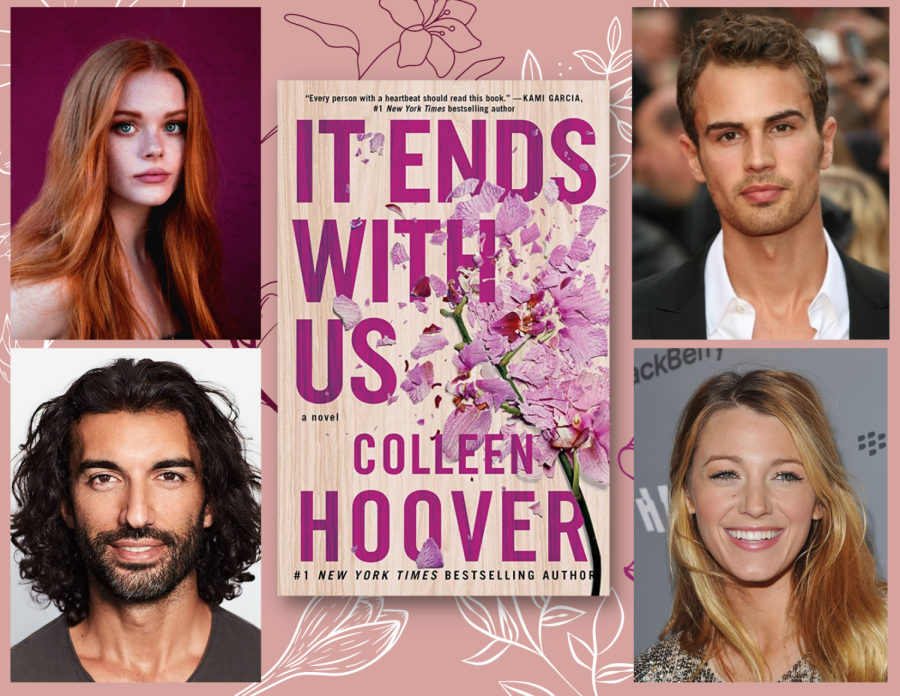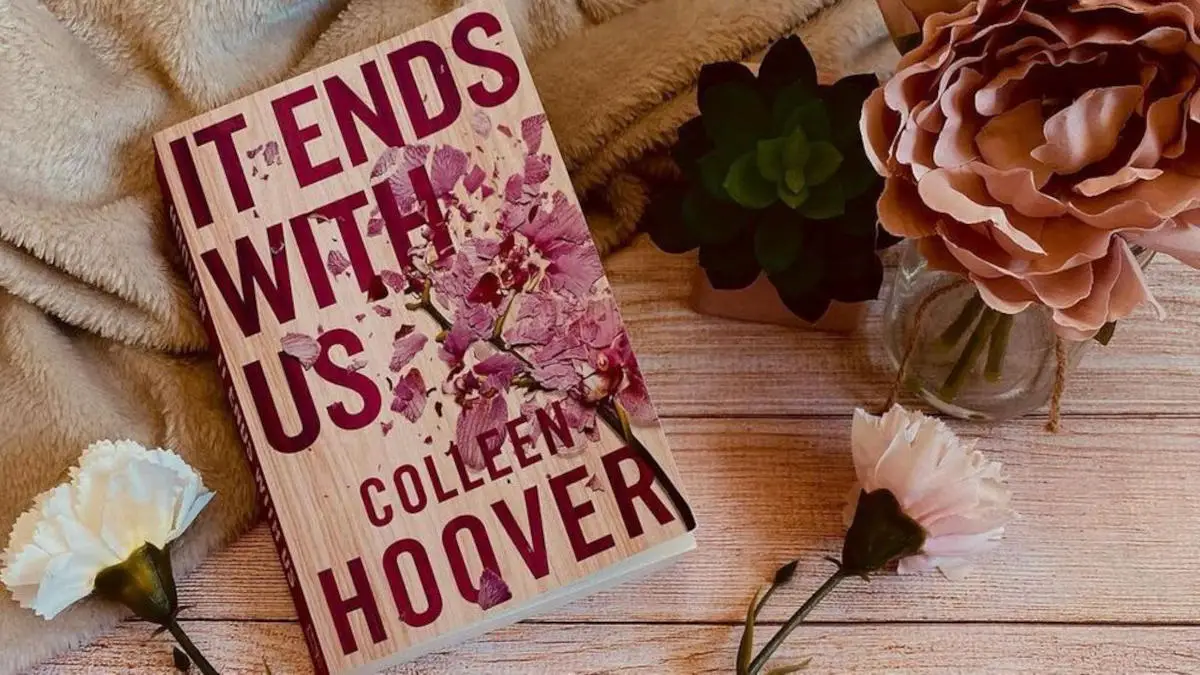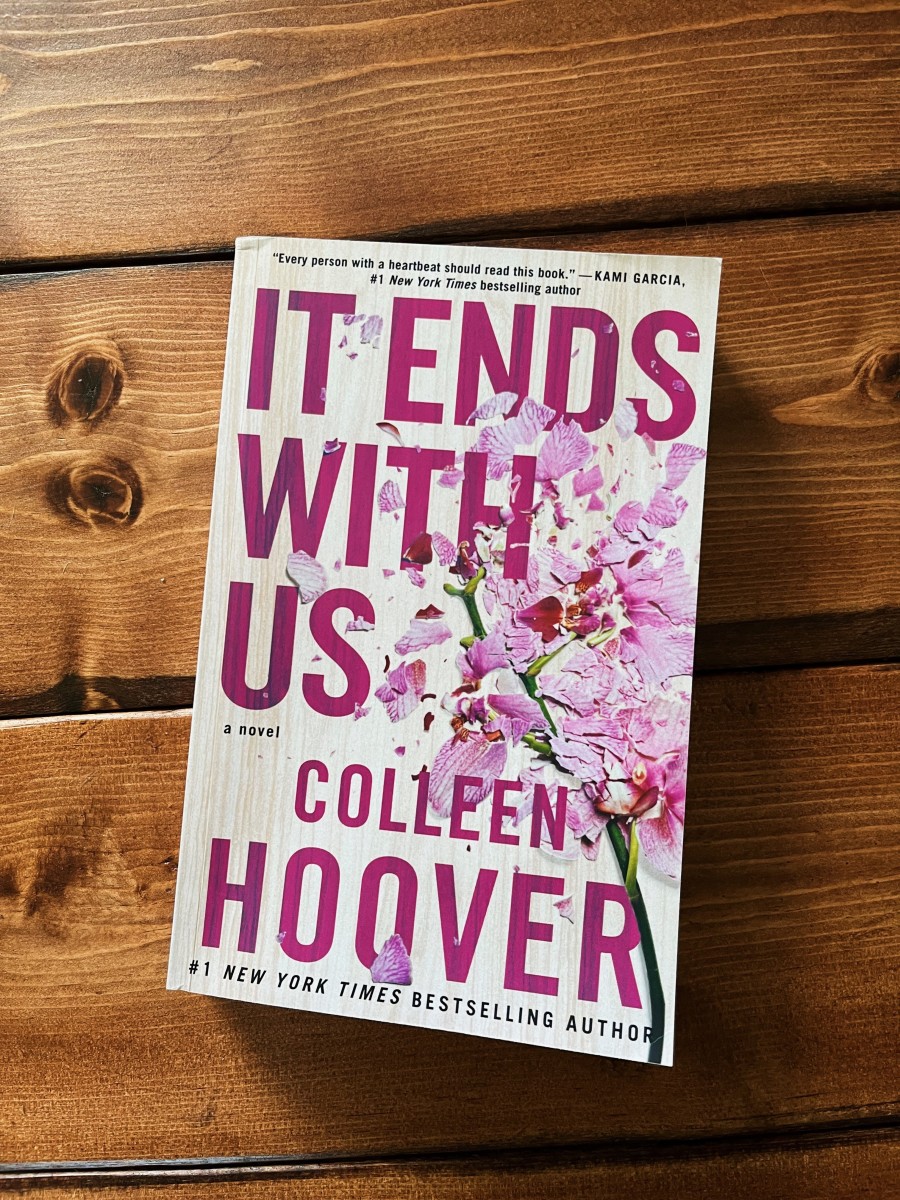A Deep Dive into the Guardian’s Review of "It Ends with Us": Exploring Themes of Love, Trauma, and Redemption
Related Articles: A Deep Dive into the Guardian’s Review of "It Ends with Us": Exploring Themes of Love, Trauma, and Redemption
Introduction
With enthusiasm, let’s navigate through the intriguing topic related to A Deep Dive into the Guardian’s Review of "It Ends with Us": Exploring Themes of Love, Trauma, and Redemption. Let’s weave interesting information and offer fresh perspectives to the readers.
Table of Content
A Deep Dive into the Guardian’s Review of "It Ends with Us": Exploring Themes of Love, Trauma, and Redemption

Colleen Hoover’s "It Ends with Us" has become a phenomenon, captivating readers with its emotionally charged story of love, loss, and the complexities of human relationships. The Guardian, a renowned British newspaper known for its insightful literary criticism, published a review of the book that delves into its thematic depth and resonates with the complexities of the narrative.
This article aims to dissect the Guardian’s review, offering a comprehensive analysis of its key points and exploring the broader context of "It Ends with Us" within the contemporary literary landscape.
The Guardian’s Review: A Critical Examination
The Guardian’s review, penned by Lucy Mangan, is a nuanced exploration of "It Ends with Us," acknowledging its popularity while offering a balanced critique. Mangan recognizes the novel’s appeal, noting its "emotional punch" and its ability to draw readers into the lives of its characters. She describes the book as a "page-turner" and acknowledges its "powerful" portrayal of trauma and its impact on relationships.
However, Mangan also highlights the novel’s shortcomings, criticizing its "melodramatic" plot and its reliance on "cliched" tropes. She points out the book’s tendency towards "sentimentality" and argues that its "overly simplistic" portrayal of complex issues like domestic violence and mental health risks diminishing their gravity.
Exploring the Key Themes of "It Ends with Us"
Mangan’s review effectively unpacks the central themes that drive "It Ends with Us," allowing for a deeper understanding of the novel’s impact.
-
Love and its complexities: The novel explores the multifaceted nature of love, contrasting the passionate but tumultuous relationship between Lily and Ryle with the quiet, unwavering affection she shares with Atlas. This exploration of different forms of love challenges conventional notions and compels readers to question their own understanding of this powerful emotion.
-
Trauma and its lasting effects: "It Ends with Us" delves into the profound impact of childhood trauma on Lily’s life and relationships. The novel portrays how past experiences shape her present, highlighting the importance of addressing trauma and its enduring influence on individuals.
-
Redemption and forgiveness: The novel grapples with the difficult question of forgiveness, particularly in the context of abuse. Lily’s journey towards healing and her struggle to reconcile with her past are central to the narrative. The novel explores the complex process of forgiveness, acknowledging its challenges and its potential for personal growth.
The Broader Context: "It Ends with Us" in the Contemporary Literary Landscape
"It Ends with Us" has resonated with a wide audience, particularly among young adults, due to its relatable characters and its exploration of universal themes. The novel has become a cultural phenomenon, sparking conversations about love, relationships, and the importance of seeking help when facing trauma.
The novel’s popularity highlights the growing interest in contemporary literature that deals with complex emotional issues. Readers are seeking narratives that resonate with their own experiences and offer insights into the human condition. "It Ends with Us" has tapped into this desire, providing a platform for exploring difficult themes and sparking important discussions.
Related Searches: FAQs
1. What are the main characters in "It Ends with Us"?
The main characters in "It Ends with Us" are Lily, Ryle, and Atlas. Lily is a young woman navigating her romantic relationships and dealing with the impact of past trauma. Ryle is a charming neurosurgeon with a dark secret, while Atlas is Lily’s childhood friend who offers unwavering support.
2. What is the main conflict in "It Ends with Us"?
The main conflict in "It Ends with Us" revolves around Lily’s relationship with Ryle, who is abusive. Lily struggles to reconcile her love for him with the reality of his actions and the impact they have on her well-being.
3. Is "It Ends with Us" a romance novel?
"It Ends with Us" is categorized as a romance novel, but it also explores themes of trauma, abuse, and healing. It is a complex and multifaceted story that transcends the traditional boundaries of the genre.
4. What are some of the criticisms of "It Ends with Us"?
Critics have argued that "It Ends with Us" relies on melodramatic plot devices and stereotypical characters. Some have also criticized the novel’s portrayal of domestic violence, arguing that it simplifies a complex issue and risks trivializing the experiences of victims.
5. What is the significance of the title "It Ends with Us"?
The title "It Ends with Us" is a powerful statement about the ending of a relationship, particularly one marked by abuse. It suggests that the end of a relationship can be a necessary step towards healing and personal growth.
6. Is "It Ends with Us" based on a true story?
Colleen Hoover has stated that "It Ends with Us" is not based on a true story, but it is inspired by her own experiences and observations. The novel draws from real-life issues like domestic violence and mental health, making it resonate with readers who have experienced similar challenges.
7. What are some of the positive aspects of "It Ends with Us"?
"It Ends with Us" has been praised for its emotional impact and its ability to connect with readers on a personal level. The novel’s exploration of love, loss, and trauma has resonated with many, prompting discussions about important social issues.
8. What are some similar books to "It Ends with Us"?
Readers who enjoyed "It Ends with Us" might also enjoy books that explore similar themes of love, trauma, and healing. Some examples include "The Silent Patient" by Alex Michaelides, "Where the Crawdads Sing" by Delia Owens, and "The Chain" by Adrian McKinty.
Tips for Reading "It Ends with Us"
-
Be prepared for emotional intensity: "It Ends with Us" is a powerful and emotionally charged novel that explores sensitive topics. Readers should be prepared to engage with difficult themes and potentially experience a range of emotions.
-
Consider the context: It is important to approach the novel with an understanding of the broader context of domestic violence and mental health. While the novel aims to raise awareness of these issues, it is not a substitute for professional help or support.
-
Engage with the themes: "It Ends with Us" offers a platform for exploring complex issues. Readers can engage with the novel’s themes by reflecting on their own experiences and engaging in discussions with others.
Conclusion
The Guardian’s review of "It Ends with Us" provides a valuable lens through which to examine the novel’s strengths and weaknesses. While acknowledging its emotional impact and its ability to connect with readers, Mangan also highlights its shortcomings, including its reliance on melodrama and its simplification of complex issues.
Ultimately, "It Ends with Us" is a novel that invites readers to engage with its themes on a personal level. It offers a platform for exploring love, loss, trauma, and the journey towards healing. While its literary merit may be debated, the novel’s impact on readers and its contribution to broader social conversations cannot be denied.


:max_bytes(150000):strip_icc():focal(644x19:646x21)/blake-lively-it-ends-with-us-051823-1-f76821f9ad2d47928a731231018193fb.jpg)





Closure
Thus, we hope this article has provided valuable insights into A Deep Dive into the Guardian’s Review of "It Ends with Us": Exploring Themes of Love, Trauma, and Redemption. We appreciate your attention to our article. See you in our next article!